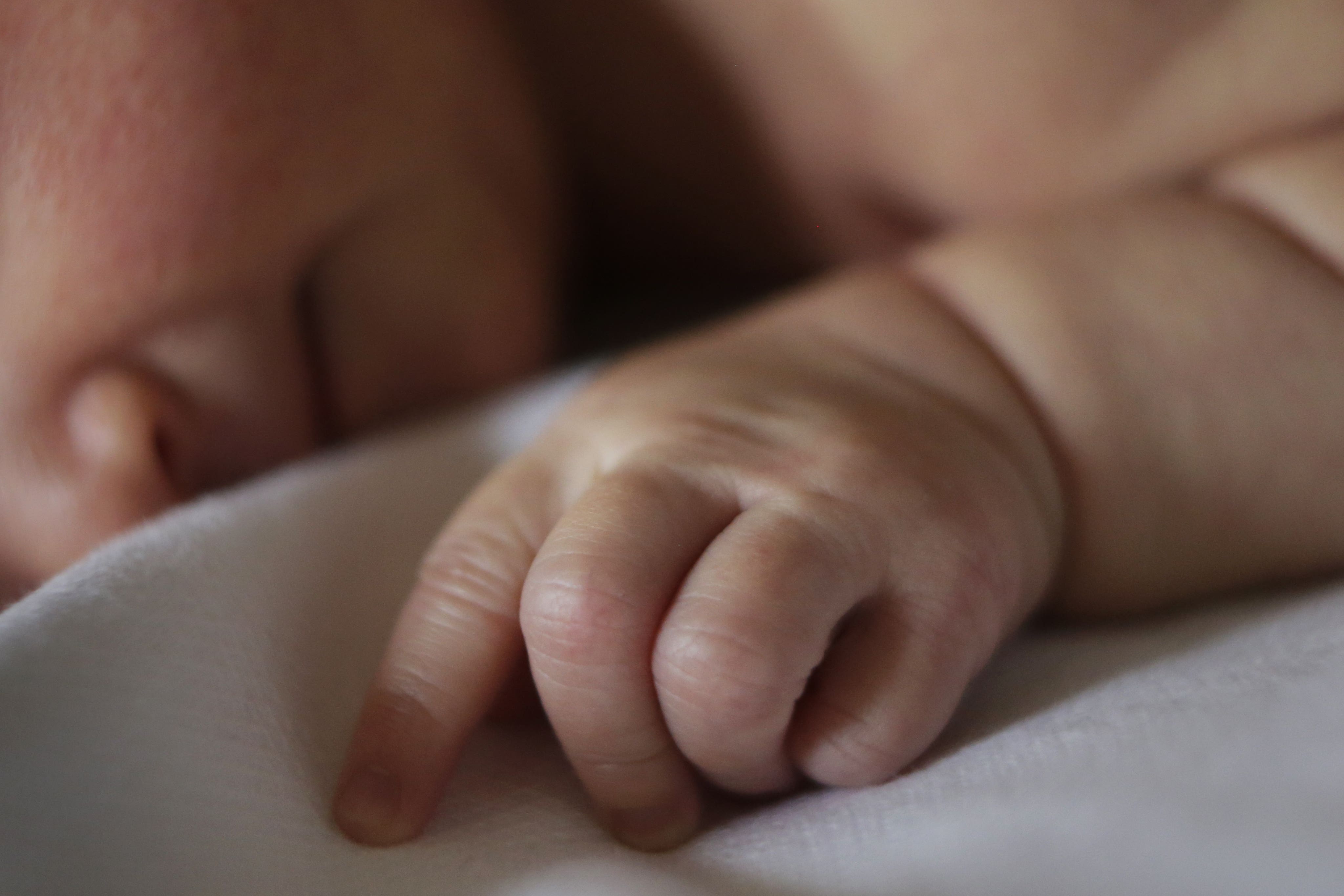Caesarean babies missing key microbes at birth ‘can get them from other sources’
Scientists found C-section babies received fewer beneficial germs from mothers at birth, but was compensated by getting more microbes from breastmilk.

Babies born via Caesarean section receive less of their mother’s bacteria during birth, but helpful microbes can still reach them through other ways such as breastfeeding, research suggests.
Scientists in the Netherlands have found that nearly 60% of a baby’s microbes come from the mother, regardless of how they were born.
The team found that Caesarean babies received fewer beneficial germs from their mothers at birth, but this seemed to be compensated for when they acquired more microbes from breastmilk.
The experts said their findings, published in the journal Cell Host & Microbe, suggest that helpful bacteria can still reach newborns through other routes such as breastfeeding and having close contact.
Senior author Wouter de Steenhuijsen Piters, a physician and data scientist at the University Medical Center Utrecht in the Netherlands, said: “We saw that many niches of the mother are important for the transmission of microbes, and if some of these pathways are blocked for one reason or another – in this case, we saw that happening with the Caesarean section – then these microbes can still reach the infant through other paths.”
He added: “It’s a smart system, and it makes sense from an evolutionary perspective that these types of pathways are redundant to ensure that the child can begin life with the appropriate ‘starter kit’.”
Microbiome transfer and development are so important that evolution has ensured that those microbes are transferred one or another way from mother to child
The human body is an ecosystem made up of microbes such as bacteria, viruses, and fungi, collectively known as the microbiome.
Bacteria account for a majority of the human microbiome with around 75 trillion and 200 trillion individual organisms living in the human body.
Babies are sterile when they are in the womb and are first exposed to germs the moment they are born.
It is thought that a baby born vaginally first comes into contact with bacteria when exposed to the mother’s faeces during labour.
Microbes that first colonise the human body are seen as crucial in helping train the immune system to tell good germs from bad ones.
For the study, the researchers studied 120 Dutch mothers and their babies.
They collected skin, nose, saliva, and gut microbiome samples from babies two hours after they were born and when they were one day old, one week old, two weeks old, and one month old.
The team also collected six different types of microbiome samples from the mothers: skin, breastmilk, nose, throat, faecal, and vaginal.
The researchers also took into account factors that can affect microbiome, such as use of antibiotics.
Analysis showed around 58.5% of a baby’s microbiome came from the mother, regardless of whether they were born vaginally or via C-section.
Findings showed that Caesarean babies who received less of their mother’s microbiome during birth benefited from breastfeeding – where they received more helpful bacteria in breastmilk compared to babies born vaginally.
First author Debby Bogaert, professor at the University of Edinburgh’s Institute for Regeneration and Repair Centre for Inflammation Research, said: “Microbiome transfer and development are so important that evolution has ensured that those microbes are transferred one or another way from mother to child.
It is very plausible to me that the microbial transfer between mother and child takes place via multiple routes
“Breastfeeding becomes even more important for children born by Caesarean section who do not receive gut and vaginal microbes from their mum.”
Researchers said that while maternal microbiome explains almost 60% of the infant’s total microbiome, the source of the other 40% still remains unknown.
Dr de Steenhuijsen Piters said: “It would be interesting to stratify that unknown fraction to see where all the microbes come from; whether fathers contribute, for example, or siblings, or the environment.”
Commenting on the research, Christoph Hartel, director of the Paediatric Clinic and Polyclinic at Wurzburg University Hospital in Germany, said: “Mothers of C-section babies – and their parents in general – often wonder if there is anything they can do for the child to help with its microbiome.
“The study provides a first positive message, which we actually always give to the women after birth: lots of cuddling, lots of breastfeeding.
“This compensates for the lack of exposure with vaginal flora. And that’s what this study now shows as well.”
Professor Bernhard Resch, deputy head of the Clinical Department of Neonatology and Research Unit for Neonatal Infectious Diseases and Epidemiology at the Medical University of Graz in Austria, who was not involved in the study, said: “The study is well planned and very well powered with 120 mother-infant pairs.
“It is very plausible to me that the microbial transfer between mother and child takes place via multiple routes.
“This puts the Caesarean birth, which is particularly necessary when the child is in acute danger, back into perspective, giving more reason to support and promote breastfeeding after Caesarean section.”
Bookmark popover
Removed from bookmarks